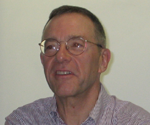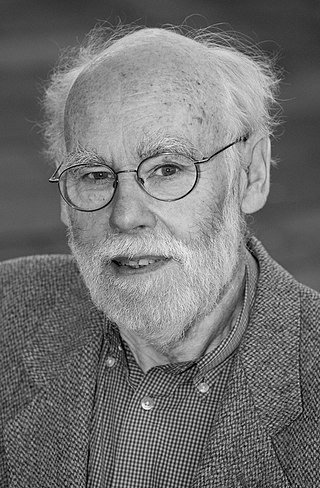
Theodosius Grigorievich Dobzhansky was a prominent Ukrainian and American geneticist and evolutionary biologist. He was a central figure in the field of evolutionary biology for his work in shaping the modern synthesis. Born in the Russian Empire, Dobzhansky emigrated to the United States in 1927, aged 27.
The American Naturalist is the monthly peer-reviewed scientific journal of the American Society of Naturalists, whose purpose is "to advance and to diffuse knowledge of organic evolution and other broad biological principles so as to enhance the conceptual unification of the biological sciences." It was established in 1867 and is published by the University of Chicago Press. The journal covers research in ecology, evolutionary biology, population, and integrative biology. As of 2018, the editor-in-chief is Daniel I. Bolnick. According to the Journal Citation Reports, the journal had a 2020 impact factor of 3.926.

Edmund Brisco "Henry" Ford was a British ecological geneticist. He was a leader among those British biologists who investigated the role of natural selection in nature. As a schoolboy Ford became interested in lepidoptera, the group of insects which includes butterflies and moths. He went on to study the genetics of natural populations, and invented the field of ecological genetics. Ford was awarded the Royal Society's Darwin Medal in 1954. In the wider world his best known work is Butterflies (1945).

Genetics and the Origin of Species is a 1937 book by the Ukrainian-American evolutionary biologist Theodosius Dobzhansky. It is regarded as one of the most important works of modern synthesis and was one of the earliest. The book popularized the work of population genetics to other biologists and influenced their appreciation for the genetic basis of evolution. In his book, Dobzhansky applied the theoretical work of Sewall Wright (1889–1988) to the study of natural populations, allowing him to address evolutionary problems in a novel way during his time. Dobzhansky implements theories of mutation, natural selection, and speciation throughout his book to explain the habits of populations and the resulting effects on their genetic behavior. The book explains evolution in depth as a process over time that accounts for the diversity of all life on Earth. The study of evolution was present, but greatly neglected at the time. Dobzhansky illustrates that evolution regarding the origin and nature of species during this time in history was deemed mysterious, but had expanding potential for progress to be made in its field.

George Ledyard Stebbins Jr. was an American botanist and geneticist who is widely regarded as one of the leading evolutionary biologists of the 20th century. Stebbins received his Ph.D. in botany from Harvard University in 1931. He went on to the University of California, Berkeley, where his work with E. B. Babcock on the genetic evolution of plant species, and his association with a group of evolutionary biologists known as the Bay Area Biosystematists, led him to develop a comprehensive synthesis of plant evolution incorporating genetics.

Sewall Green Wright FRS(For) Honorary FRSE was an American geneticist known for his influential work on evolutionary theory and also for his work on path analysis. He was a founder of population genetics alongside Ronald Fisher and J. B. S. Haldane, which was a major step in the development of the modern synthesis combining genetics with evolution. He discovered the inbreeding coefficient and methods of computing it in pedigree animals. He extended this work to populations, computing the amount of inbreeding between members of populations as a result of random genetic drift, and along with Fisher he pioneered methods for computing the distribution of gene frequencies among populations as a result of the interaction of natural selection, mutation, migration and genetic drift. Wright also made major contributions to mammalian and biochemical genetics.

Douglas Joel Futuyma is an American evolutionary biologist. He is a Distinguished Professor in the Department of Ecology and Evolution at Stony Brook University in Stony Brook, New York and a Research Associate on staff at the American Museum of Natural History in New York City. His research focuses on speciation and population biology. Futuyma is the author of a widely used undergraduate textbook on evolution and is also known for his work in public outreach, particularly in advocating against creationism.

Brian Charlesworth is a British evolutionary biologist at the University of Edinburgh, and editor of Biology Letters. Since 1997, he has been Royal Society Research Professor at the Institute of Evolutionary Biology (IEB) in Edinburgh. He has been married since 1967 to the British evolutionary biologist Deborah Charlesworth.
An evolutionary landscape is a metaphor or a construct used to think about and visualize the processes of evolution acting on a biological entity. This entity can be viewed as searching or moving through a search space. For example, the search space of a gene would be all possible nucleotide sequences. The search space is only part of an evolutionary landscape. The final component is the "y-axis", which is usually fitness. Each value along the search space can result in a high or low fitness for the entity. If small movements through search space cause changes in fitness that are relatively small, then the landscape is considered smooth. Smooth landscapes happen when most fixed mutations have little to no effect on fitness, which is what one would expect with the neutral theory of molecular evolution. In contrast, if small movements result in large changes in fitness, then the landscape is said to be rugged. In either case, movement tends to be toward areas of higher fitness, though usually not the global optima.
David Burton Wake was an American herpetologist. He was professor of integrative biology and Director and curator of herpetology of the Museum of Vertebrate Zoology at the University of California, Berkeley. Wake is known for his work on the biology and evolution of salamanders as well as general issues of vertebrate evolutionary biology. He has served as president of the Society for the Study of Evolution, the American Society of Naturalists, and American Society of Zoologists. He was a member of the American Association for the Advancement of Science, the Linnean Society of London, the American Academy of Arts and Sciences, the American Philosophical Society, and in 1998 was elected into the National Academy of Sciences. He was awarded the 2006 Leidy Award from the Academy of Natural Sciences of Philadelphia.
The Sewall Wright Award is given annually by the American Society of Naturalists to a "senior-level" and active investigator making fundamental contributions the conceptual unification of the biological sciences. The award was established in 1991 and named after Sewall Wright. The recipient need not be a member of the Society or an American. A plaque and award of $1,000 are presented at a banquet.
Mary Jane West-Eberhard is an American theoretical biologist noted for arguing that phenotypic and developmental plasticity played a key role in shaping animal evolution and speciation. She is also an entomologist notable for her work on the behavior and evolution of social wasps.
Russell Scott Lande is an American evolutionary biologist and ecologist, and an International Chair Professor at Centre for Biodiversity Dynamics at the Norwegian University of Science and Technology (NTNU). He is a fellow of the Royal Society and a member of the United States National Academy of Sciences.
Joseph A. Travis is an American Professor of Biological Science and past Dean of the College of Arts & Sciences at Florida State University.

Michael J. Wade is a professor of biology at Indiana University Bloomington. Since 2009 he has been the Associate Vice Provost for Faculty and Academic Affairs at Indiana University. He is also affiliated faculty in the following departments and centers at Indiana University: Center for the Integrative Study of Animal Behavior (CISAB), the Cognitive Science Program, and the Department of History and Philosophy of Science.
Sarah Perin "Sally" Otto is a theoretical biologist, Canada Research Chair in Theoretical and Experimental Evolution, and is currently a Killam Professor at the University of British Columbia. From 2008-2016, she was the director of the Biodiversity Research Centre at the University of British Columbia. Otto was named a 2011 MacArthur Fellow. In 2015 the American Society of Naturalists gave her the Sewall Wright Award for fundamental contributions to the unification of biology. In 2021, she was awarded the Darwin-Wallace Medal for contributing major advances to the mathematical theory of evolution.
The Association of Southeastern Biologists (ASB) is a scientific professional organization in the southeastern United States focused on promoting research and education across the biological sciences. The ASB hosts an annual meeting featuring paper and poster sessions, workshops, and symposia across a variety of biological disciplines. The ASB also issues the yearly publication Southeastern Biology.

Spencer Charles Hilton Barrett is a Canadian evolutionary biologist, formerly a Canada Research Chair at University of Toronto and, in 2010, was named Extraordinary Professor at University of Stellenbosch.
Ruth Geyer Shaw is a professor and principal investigator in the Department of Ecology, Evolution and Behavior at the University of Minnesota. She studies the processes involved in genetic variation, specializing in plant population biology and evolutionary quantitative genetics. Her work is particularly relevant in studying the effects of stressors such as climate instability and population fragmentation on evolutionary change in populations. She has developed and applied new statistical methods for her field and is considered a leading population geneticist.
Priyanga Amarasekare is a Professor of Ecology and Evolutionary Biology at the University of California, Los Angeles (UCLA) and distinguished Fellow of the Ecological Society of America (ESA). Her research is in the fields of mathematical biology and trophic ecology, with a focus on understanding patterns of biodiversity, species dispersal and the impacts of climate change. She received a 2021 Guggenheim Fellowship and received ESA's Robert H. MacArthur Award in 2022.










